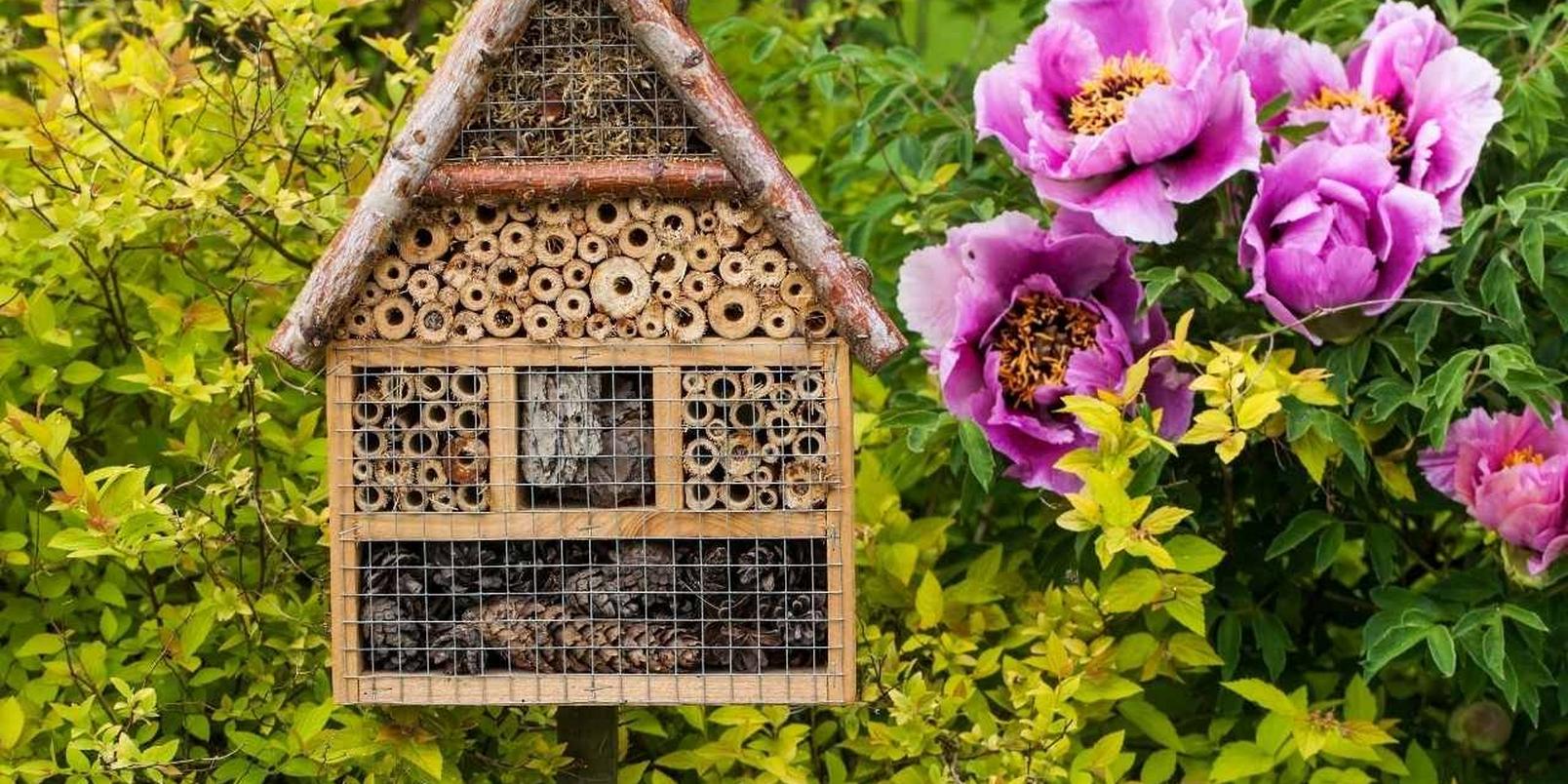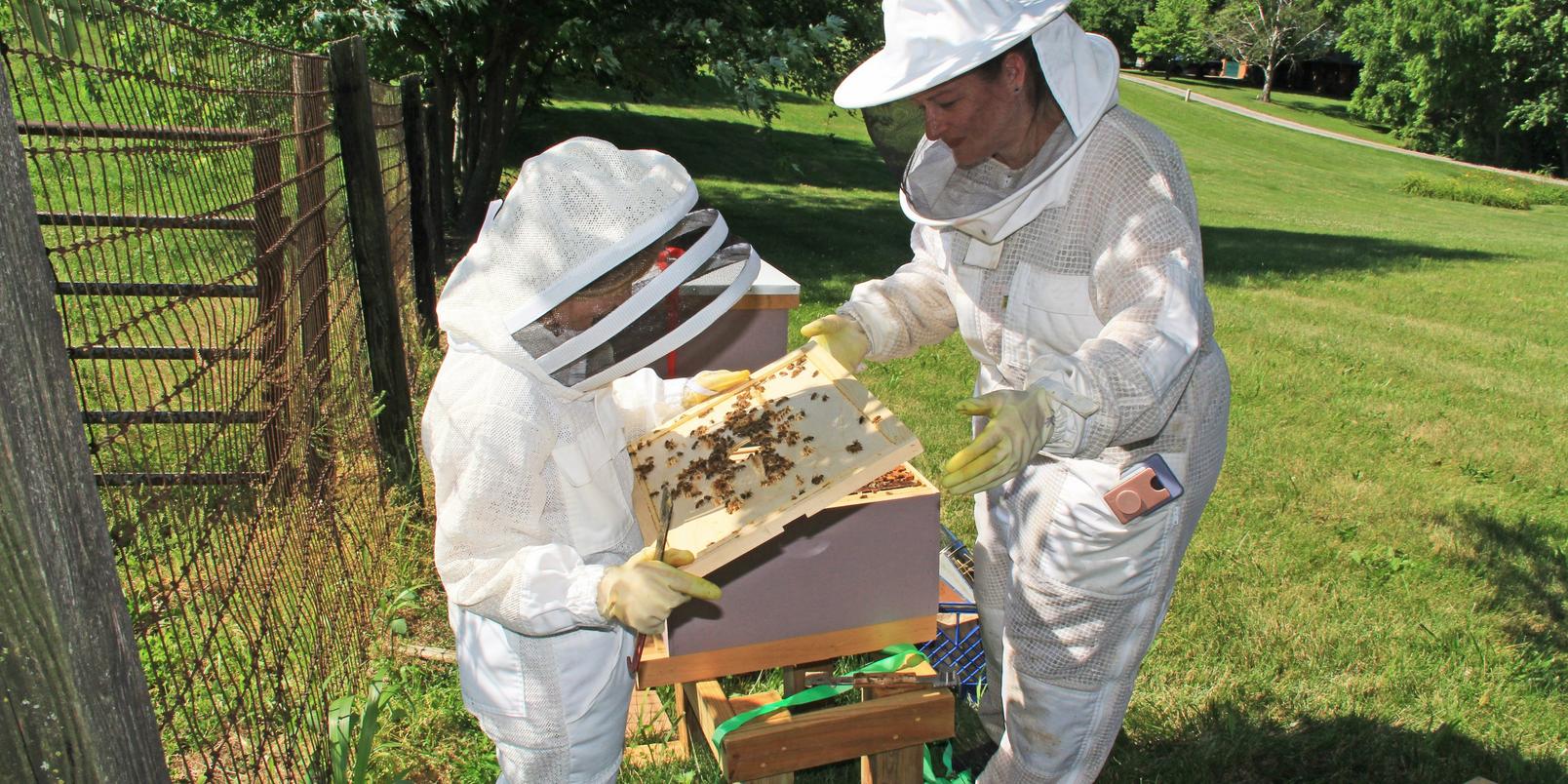FREE VASE on selected Mother’s Day bouquets* use code: FREEVASE. Shop now
How youcan help yourlocal bees
16th June, 2022
With up to 50% of all European bee species at risk of extinction, it’s time to jump in and see what we can all do to help the bees. From planting more flowers in your garden to creating bee-friendly shelters, discover what you can do to help save our bees and keep these important pollinators going.
The importance of bees
Why do we love bees so much? Bees don’t just pollinate the incredible flowers around us. They are vital in creating a stable food supply and supporting our native ecosystems. In fact, we can thank the humble bumblebee and its fellow pollinators for a third of the food we eat. Without them, we’d be missing our morning coffee, fruit and porridge! From keeping food on our plates to helping our garden plants to grow, we can’t thank bees enough for all their work (although we know they probably can’t hear us). It’s time to show these tiny creatures some love and care, and save the bees around us.
Help and save the bees around you
If you come across a bee in need in your local area or a friendly bee has come to say hello in your home, you can help get it back on its feet. Sometimes bees can become exhausted and need a little energy boost. If you find a bee that’s looking a bit weary, pop it on a nearby flower so it can bask in the sunlight for a speedy recovery. Feeling braver? Let it sit in the palm of your hand for added body warmth – although a tired bee is not likely to sting, make sure you keep your movements slow so not to scare them.
Learn more essential tips on how to help a tired bee with our Bee First Aid guide.
BEE FRIENDLY BUNDLE
Give our fuzzy friends the best place to rest their wings with their very own bee house. Take a look at our Bee Friendly Bundle which contains a bee house for solitary bees and a lovely lavender plant which these pollinators love! What could be better?
Plant wildflowers
From enchanting bluebells to woodland honeysuckle, we are big fans of wildflowers. But there’s more to these wild bloomers than just their appearance. Just like us, bees need a varied diet to live healthy lives, with different species preferring different types of flowers. You can help with this by planting some wildflowers in your garden or on your porch and give your bee community some much-needed pollen and nectar. Building up a colourful array of bee-friendly flowers is an amazing way to diversify your ecosystem and help local bees pollinate, so roll up your sleeves and start planting!
Can’t decide what to plant? Discover our top picks for the perfect plants for bees.
Build a bee retirement home
Trying to save the bees can be difficult, especially when they’re losing their natural habit. Of the estimated 270 species of bee in the UK, around 250 of these are solitary bees. These unsung heroes of the bee world love their independence and don’t serve a queen (no Queen B calling out her single ladies here!). Unlike honeybees or bumblebees, they lose pollen as they fly, making them all-star pollinators – but it also means they struggle to fly as far and find places to make their nests. Solitary bees like to nest in hollow wooden tubes. So building somewhere for them to stay like our bee retirement home can help save them. It’ll keep them warm and protected, letting them lay their eggs and continue their important pollination work.\
Grow a variety of bee-friendly plants
Bees thrive when they have access to a wide variety of flowers. Planting a mix of annuals, perennials, herbs, shrubs, and trees ensures a continuous supply of nectar and pollen. Include plants with different flower shapes and colours to attract a diversity of bee species. Some favourites include lavender, thyme, borage, sunflowers, clover, and fruit trees like apple and cherry.
Leave some areas undisturbed
Bees need safe nesting sites, which often exist in bare soil, dead wood, or undisturbed vegetation. Avoid excessive lawn mowing, tilling, or clearing of natural debris in garden areas. Letting small patches of your garden stay wild provides crucial habitat for ground-nesting and cavity-nesting bees. You might even be surprised to discover native bees nesting right under your feet!

Get involved and support local
Spread the word and get your friends and family excited about saving bees too. It’s easy to put these simple ideas into action, so why not try and put up a bee hotel in your local allotment? Or encourage friends to plant some bee-friendly flowers.
Create bee hotels
Solitary bees, like mason bees and leafcutter bees, don’t live in hives but nest in small holes or tunnels. You can build a bee hotel by bundling hollow stems (like bamboo or reeds), drilling holes into untreated wood blocks, or purchasing ready-made bee houses. Place these structures in sunny, sheltered spots facing southeast, and avoid disturbing them during nesting season. Bee hotels provide essential nesting sites that support wild bee populations.
Provide fresh water sources
Bees need water not only to drink but also to cool their hives. Provide a shallow water source such as a birdbath or a shallow dish filled with water. Add small pebbles, twigs, or cork pieces so bees have safe landing spots and won’t drown. Change the water daily to keep it fresh and free from mosquitoes.
Support local beekeepers
Buying honey and other products from local beekeepers encourages sustainable and responsible beekeeping practices. Local honey also helps your immune system adjust to local pollen, and supporting beekeepers funds efforts to maintain healthy bee colonies. Visit farmers markets or local co-ops, or ask beekeepers directly about their practices and how they protect bee health.
Get educated to save the bees
Knowing what plant products you should use in your garden is important for bee safety. Try to avoid harmful chemicals, including synthetic pesticides, fertilizers, herbicides and neonicotinoids, which all harm the bee population. True to its name, insecticides kill insects, so a simple switch to organic products can keep your soil healthy without hurting any bees. Keep up the buzz of learning about saving bees by inspiring each other to pick up new bee-friendly tips. This can help spread the message and make bee caring fun for everyone!
Bees need saving, but the good news is that we can do something about it. Want to learn more? Check out our amazing facts about bees, or if you’re inspired to help, browse our collection of best-selling blooms.

